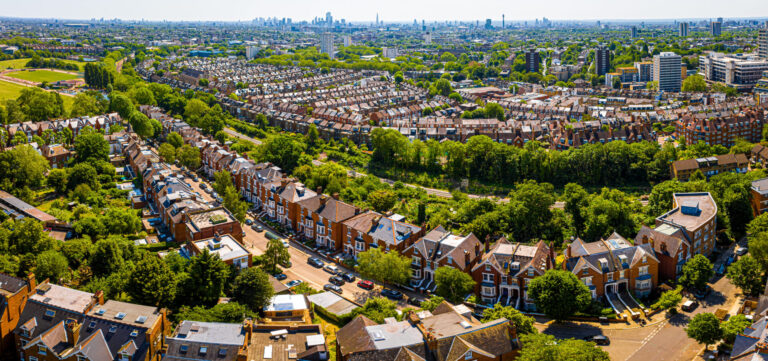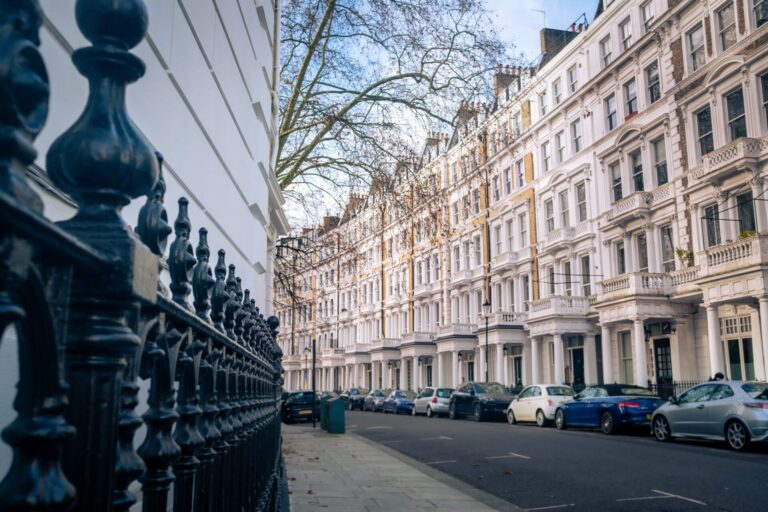Landlord insurance is a policy that’s designed to protect people against the various financial risks involved with being a landlord. It’s a way of guarding you against the unknown and making sure that you’re covered against any large financial losses you may incur in your role as a landlord.
When you become a landlord and are looking for insurance, choose a policy that covers the specific risks that you’re worried about. You can then relax in the knowledge that you’re financially covered, even if the worst happens.
There are many types of landlord insurance so it’s important to know what your policy covers and what it doesn’t.
What is landlord insurance?
Landlord insurance protects people from financial loss when they rent out their properties to tenants. The landlord insurance policy that you end up with will cover you for specific circumstances. If you experience these circumstances, you can make a claim and your insurance provider will cover the costs you’ve incurred. There may be a cap for certain costs (e.g. up to £5,000) but this will be stated within your policy.
Insurance policies vary, but typically, buildings insurance is a large part of each one. This means that you’re covered for any financial loss caused by things beyond your control, such as fire, theft, and storms.
However, landlord insurance policies vary widely, which means that they cover different risks. Some might include content insurance, whilst others don’t. You can often add on additional cover for the specific circumstances that you’re worried about. For example, you can add on insurance to cover damage caused by your tenants, insurance to cover rent arrears, or accidental damage.
Landlord insurance vs home insurance
Landlord insurance is different to home insurance because it covers different risks; it’s a specialist insurance for landlords. If you take out home insurance and your provider finds out that you’ve been letting out your property without telling them, it could invalidate your insurance policy completely.
What does landlord insurance cover and not cover?
Landlord insurance is a blanket term that applies to all insurance policies available to landlords. You need to check and compare policies to find out what’s covered by each one, and what isn’t. You can pick and choose parts to add on, and occasionally there’ll be discounts when you combine policies, such as buildings and contents insurance.
Buildings insurance and property owners liability cover are typically covered by most landlord insurance policies.
Buildings insurance
This covers you for a range of ways in which your property can be damaged, including fire, floods, storms, falling trees and more. Your buildings insurance should cover you up to the cost of a full rebuild of your property, including site clearance etc.
Property owners liability cover
Property owners liability cover insures you in case your tenants (or their visitors) have an accident in or around your property and then make a claim against you. For example, this would include a tenant tripping and hurting themselves on a raised carpet, or a delivery person getting hit by a falling tile from the roof. If you’re found to be responsible for the person’s injury, this insurance covers you for the costs and/or damages associated with the case.
Contents insurance, loss of rent and other options can often be added on as optional extras to your landlords insurance.
Landlord contents insurance
If you’re letting out a furnished property, landlords contents insurance covers all of your furniture and furnishings as well as appliances, like free standing fridges and washing machines. You’ll be compensated for the costs of these items if they’re lost or damaged due to theft, fire or floods etc.
Your tenant(s) needs to take out their own contents insurance for all the items they own within the property; you’re not responsible for the cost of their items, no matter how they’re lost or damaged.
Loss of rent cover
Loss of rent insurance means that your rental income is protected when disaster strikes. The property might have been made uninhabitable by a fire, flood or storm, and your current tenants may need to move out. Alternatively, the property might be damaged before tenants even move in, and again, this insurance would cover you for the loss of that rent. However, this insurance is different to tenant default insurance and alternative accommodation cover, which you may need to take out separately.
Alternative accommodation cover
Depending on your tenancy agreement, you may need to provide alternative accommodation for your tenants if something happens that makes your property unsafe to live in. This insurance would cover the cost of the alternative accommodation.
Tenant default insurance
This insurance is sometimes referred to as rental default insurance, and it covers you in case your tenant doesn’t pay their rent. To claim on this, you may have to serve an eviction notice to the tenant first so make sure you check before going ahead.
Legal expenses
These aren’t covered by most standard landlord insurance policies, so you need to decide if you think you’ll need this insurance. You may incur legal costs if you have to take someone to court for reasons such as non-payment, or contract disputes, and this cover will help cover your legal costs.
Malicious damage by tenants cover
Damage by burglars or vandals is often covered by buildings insurance, however, any malicious damage caused by your own tenants won’t be. Unfortunately, some tenants vandalise and damage property, and the costs of this can run into thousands of pounds. Taking out this type of insurance means that the costs of getting your property back to its original state are covered. Bear in mind that some providers have malicious damage by tenants cover broken down into buildings cover (structural damage, and kitchen/bathroom units) and contents cover (damage to furniture and fittings)
Accidental damage
This is especially useful if you do a lot of the upkeep on your rental property yourself. Accidental damage provides cover for damage such as a nail through a pipe, a foot through the floorboard, or an accidentally smashed window. Some landlord policies have accidental cover as standard, but they may limit what it applies to so make sure you check if you need to extend this cover.
Is it worth having landlord insurance?
As a landlord, you’re not legally required to have any landlord insurance at all. However, if you have a mortgage on your rental property, your lender is likely to insist that you have landlord insurance and you may not be given a mortgage without it.
The tenancy agreements you put in place when you rent out your property sets out your responsibilities as a landlord. Having the right insurance cover is often the best way to make sure you can meet these responsibilities without putting your finances at risk.
When you rent out property, you take on increased risks compared to living in your own home; for example, if your tenant gets injured in your property you could be facing a legal claim. If their claim is successful and you don’t have the right landlord insurance, you’ll have to pay the costs out of your own pocket. Landlord insurance is there to protect you against situations like these.
What type of landlord insurance do I need?
There are a lot of different landlord insurance policies out there, providing various levels of cover and often with the choice of add-ons for specific risks. With so many options available, it can feel overwhelming when you’re deciding between them.
The right type of landlord insurance for you depends on the type of property you’re renting out, who you’re renting it out to, and most importantly, the specific risks that you’re worried about. If you’re worried about having months with no rental income, then make sure this is covered by your policy, or if your concern is more about property damage by tenants, then get additional cover for this as part of your policy.
Landlord insurance for multiple properties
If you have a large portfolio of properties, it might be worth getting landlord insurance that covers them all within one policy. You can get discounted rates from providers this way, as well as peace of mind knowing that they’ll all renew at the same time.
In order to find the right landlord insurance for you it’s best to start getting some quotes and comparing what each one covers. Think about the level of cover you need for your circumstances, and make a list of what you want to be insured for. Talk to providers to see whether they already cover these risks, and if not, whether you can add on specific cover. If so, you’ll be given a new quote based on the additional cover.
Landlord insurance can protect you when disaster strikes. If you’re looking at your options and want to know how much your property is worth in today’s market, then get in touch for your free valuation now.




